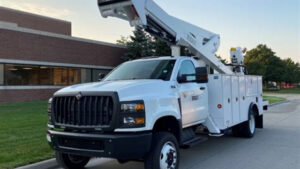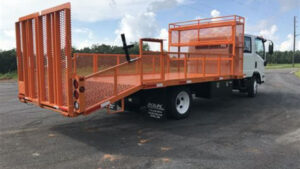Building your own food truck can seem like a daunting task, but with the power of the internet, it has never been easier. By utilizing online resources, you can not only design the perfect food truck that fits your culinary needs but you can also order all of the necessary equipment and supplies. The beauty of building your own food truck online is that you can take your time and customize every detail without the stress and pressure of face-to-face interactions. With a little research and effort, you can create a unique and successful food truck that’s sure to please your customers.
1. Importance of Building Your Own Food Truck Online
In recent years, food trucks have experienced a surge in popularity. From offering gourmet dishes to traditional street food, food trucks have become a staple of many local food scenes. However, with the competition increasing, building your own food truck online has become a necessity to stay ahead of the game.
2. The Benefits of Building Your Own Food Truck Online
Building your own food truck online is a cost-effective and convenient way to customize your food truck. You can design your truck to reflect your brand, choose the equipment necessary to create your menu, and even plan out storage areas. In addition, the online platform allows you to preview your design, make changes on the fly, and easily share your ideas with your team and customers.
3. How to Build Your Own Food Truck Online
To build your own food truck online, you need to start by researching the different options available. There are several online platforms that allow you to create a virtual food truck, such as FoodTruckr and Build A Food Truck. These platforms provide tools to help you design your truck’s interior, choose the equipment needed to cook your food, and even estimate the cost of your build.
4. Choosing the Right Equipment
Choosing the right equipment for your food truck is essential to your success. You need to choose equipment that is durable, efficient, and easy to install. Consider the size of your kitchen, your food menu, and the type of cuisine you will offer when choosing your equipment. Common equipment used in food trucks includes refrigeration units, ovens, grills, and fryers.
5. Designing Your Food Truck’s Interior
The interior of your food truck should be designed to maximize your workspace and ensure the safety of your team. Consider the flow of traffic within the truck, the placement of equipment, and the storage space needed for your ingredients and cooking supplies. Your design should also incorporate your brand’s colors and logo to create an attractive and memorable customer experience.
6. Obtaining Permits and Licenses
Before hitting the road with your food truck, you need to ensure you have all the necessary permits and licenses in place. These can include a business license, food service permit, and parking permit. Contact your local government offices to obtain the necessary permits and licenses.
7. Marketing Your Food Truck
Marketing is essential to attracting customers to your food truck. Utilize social media platforms, such as Instagram and Facebook, to showcase your menu and location. Offer promotional discounts, create partnerships with local businesses, and participate in food festivals and events to get more exposure.
8. Creating a Menu That Sells
A successful food truck menu includes a variety of dishes that are easy to prepare, transport, and serve. Take into consideration popular food trends, seasonal produce, and local cuisine when creating your menu. Additionally, consider the pricing of your dishes to ensure they are profitable while still being affordable for your customers.
9. Maintaining Your Food Truck
Maintaining your food truck is crucial in keeping your business running smoothly. Regularly check your equipment for wear and tear, clean the interior and exterior of your truck, and make any necessary repairs. During downtime, take the time to restock ingredients, prep your food, and plan your next event.
10. Conclusion
The popularity of food trucks shows no signs of slowing down, and building your own food truck online is a must to stay ahead of the competition. With the ability to customize your truck, choose the right equipment, create a unique menu, and market your business, you can create a successful and profitable food truck business.
Design Your Food Truck
Now that you have your food truck concept and budget in mind, it’s time to start the fun part; designing your very own food truck! You can either hire a professional designer or do it yourself with one of the many online design tools available. Here are some key tips to keep in mind as you conceptualize your truck’s design:
1. Reflect Your Brand
Your food truck’s design is the key element that will help you stand out from the competition, so make sure it reflects your unique brand. Incorporate your logo, brand colors, and messaging to create a cohesive and recognizable look.
2. Focus on Functionality
While you want your food truck to look amazing, it’s crucial that you prioritize functionality over aesthetics. Make sure to include plenty of kitchen space, storage, and easy-to-use appliances for efficient food preparation and service.
3. Consider the Road
Your food truck design needs to be road-worthy and legal for on-the-go service. You’ll need to factor in the weight and size limits, as well as special permits and regulations in your local area.
4. Get Creative with Signage
Your food truck’s signage is important for attracting customers and communicating your menu. Get creative with your menu board and make sure to feature your most popular dishes and specials.
5. Use Durable Materials
Your food truck will need to withstand the elements and constant use, so it’s essential to use durable and high-quality materials in your design. Stainless steel, aluminum, and weather-resistant plastics are all good options.
6. Get Inspiration from Others
Take a look at other food trucks in your area or in similar markets to get inspiration for your own design. Note what works well and what doesn’t, and incorporate those learnings into your own unique design.
7. Leave Room for Growth
You may not have the budget or time to create your ultimate dream food truck, but it’s important to leave room for growth and expansion as your business grows. Consider leaving extra space for additional equipment or adding expandable awnings and windows for outdoor seating.
8. Think About Customer Experience
Your design should also focus on creating an enjoyable customer experience. Consider adding music, outdoor seating, and creative lighting to enhance the dining experience.
9. Stay Flexible
Your food truck design should be flexible and adaptable in case you need to pivot your business strategy. Consider adding removable elements like menu boards and signage that can easily be replaced or updated.
10. Get Feedback
Finally, don’t be afraid to get feedback from customers, friends, and family as you refine your food truck design. They may have insights or suggestions that you hadn’t considered, helping you create a truly unique and successful food truck concept.
Choosing Your Food Truck Style and Layout
One of the most important decisions you’ll make when building your own food truck is choosing its style and layout. This will not only affect the overall look and feel of your food truck, but also its functionality and how well it serves your food.
1. Start with a Concept
The first step is determining the type of food you want to serve and what kind of vibe you want your food truck to have. Are you catering to a specific demographic, such as college students or foodies? Do you want your truck to have a modern and sleek feel or a more rustic appearance?
Answering these questions will help you create a concept that you can base your food truck layout and design on.
2. Consider Your Equipment Needs
Your food truck will require various pieces of equipment, such as a grill, fryer, refrigerator, and sink. Consider the size and placement of each piece of equipment when designing your layout. You’ll want to ensure that everything is easily accessible and that there’s enough space for your staff to work comfortably.
3. Think About the Flow
The flow of your food truck is crucial to its success. You’ll want to ensure that your customers can easily navigate your truck and that there’s a logical order for them to place their orders and receive their food. You’ll also want to ensure that your staff can work efficiently, with easy access to all necessary equipment.
4. Layout Options
Once you have a concept in mind and have thought about your equipment needs and flow, it’s time to consider layout options. There are a variety of food truck layouts to choose from, but some common options include:
| Layout Option | Description |
|---|---|
| In-line | All equipment and customer service areas are aligned in a straight line within the truck. |
| U-shaped | The equipment and customer service area form a U-shape, allowing for a more centralized workspace. |
| L-shaped | The equipment forms an L-shape, with the customer service area usually at the front or end of the truck. |
5. Sketch and Revise
Once you have a layout in mind, sketch it out and make revisions as needed. Consider factors such as counter heights, storage space, and customer seating. You may also want to seek input from other food truck owners or restaurant professionals.
Choosing the right style and layout for your food truck is a crucial part of building your own food truck online. Consider your concept, equipment needs, flow, and layout options, and don’t be afraid to make revisions until you create the perfect design for your food truck.
Sorry, it seems that the given list is empty. Can you please provide a new list for me?
Thanks for stopping by!
I hope this article has been helpful in giving you an idea of how to build your own food truck online. It’s a fun and exciting venture to get into, and there are so many resources available to make it a reality. Don’t forget to check out some of the links provided and continue exploring all the different options out there. And, as always, come back soon for more helpful articles and tips on lifestyle and entrepreneurship. Happy building!


